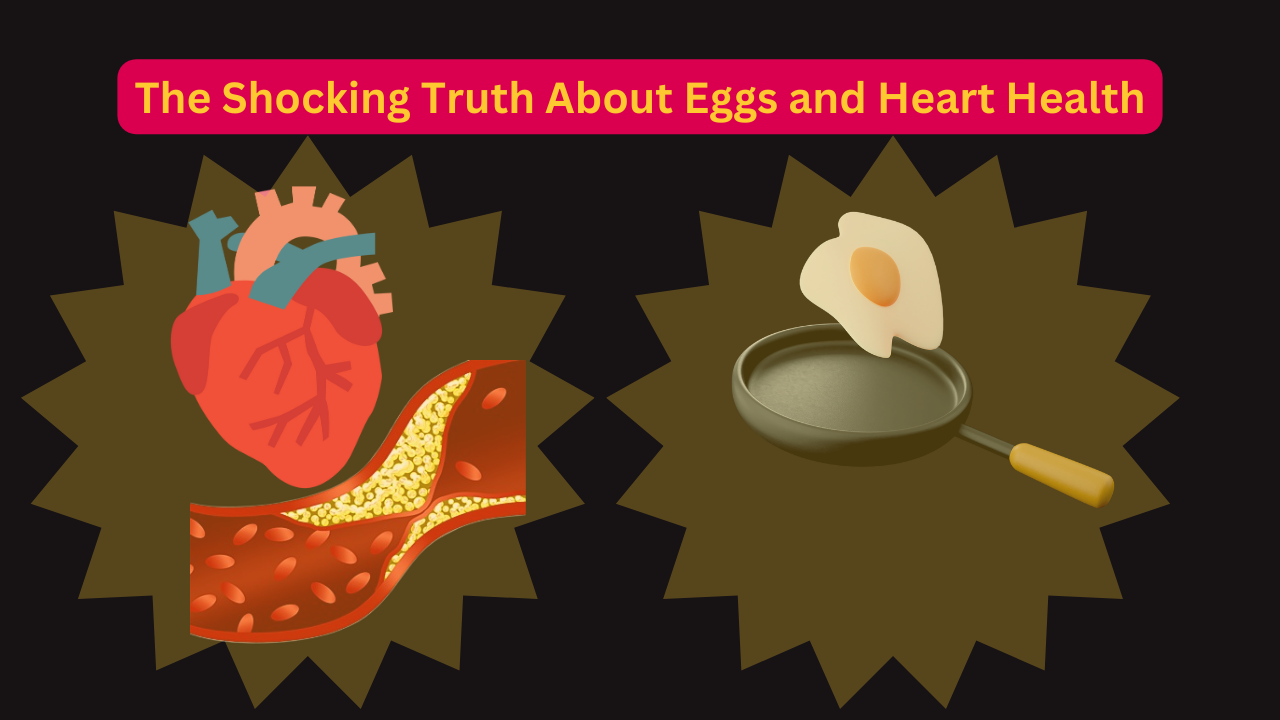Are Eggs Really the Enemy for Heart Health?
For decades, we’ve been told that cholesterol and eggs are the enemy when it comes to heart health. The conventional wisdom has been that eating too many eggs can raise your blood cholesterol levels, leading to clogged arteries and an increased risk of heart disease and heart attacks. However, the scientific understanding of the relationship between eggs, cholesterol, and heart health has evolved significantly in recent years.
Challenging the Cholesterol Myth
The notion that dietary cholesterol, particularly from eggs, is a primary driver of heart disease has been widely challenged by recent research. A systematic review and meta-analysis published in the American Journal of Clinical Nutrition in 2013 examined 17 different studies and found that consuming eggs does not have a significant impact on blood cholesterol levels for most people.
Furthermore, a study published in the Journal of Clinical Nutrition in 2015 looked at a large prospective cohort and found that egg consumption actually lowers the risk of type 2 diabetes and improves overall arterial health. This contradicts the long-held belief that eggs should be avoided due to their high cholesterol content.
Debunking the Egg-Blood Pressure Myth
Another common myth is that eggs should be avoided by individuals with high blood pressure. However, a study published in the Journal of Clinical Nutrition in 2016 analyzed data from the Framingham Heart Study and found no association between egg consumption and the development of high blood pressure.
In fact, paradoxically, studies have shown that eggs can actually help prevent heart attacks, rather than causing them. The cholesterol found in egg yolks is not the villain it was once believed to be, and the nutrients and antioxidants present in eggs may even provide cardiovascular benefits.
The Nutritional Powerhouse of Eggs
Eggs are a nutrient-dense food, packed with high-quality protein, vitamins, minerals, and antioxidants. They are a rich source of vitamins A, D, E, and K, as well as B vitamins, iron, zinc, and selenium. Importantly, eggs also contain choline, which is essential for brain function, and lutein and zeaxanthin, which are important for eye health.
Additionally, eggs are a great source of omega-3 fatty acids, which have been shown to have anti-inflammatory properties and can help reduce the risk of chronic diseases, including heart disease. The type of eggs you choose can also make a difference, with free-range or pasture-raised eggs generally containing higher levels of omega-3s and other beneficial nutrients compared to conventionally raised eggs.
Eggs and Diabetes: A Surprising Connection
Contrary to the common belief that eggs should be limited or avoided for individuals with diabetes, research suggests that eggs may actually have a protective effect against the development of type 2 diabetes. A study published in the Journal of the Academy of Nutrition and Dietetics found that egg consumption was not associated with an increased risk of heart disease or stroke in healthy adults, and may even help lower the risk of type 2 diabetes.
This is particularly significant, as type 2 diabetes is a major risk factor for cardiovascular disease. By incorporating eggs into a balanced, healthy diet, individuals with or at risk of diabetes may be able to improve their overall metabolic and cardiovascular health.
The Importance of Preparation and Cooking Methods
While the research overwhelmingly suggests that eggs are not the dietary villain they were once believed to be, it’s important to consider how they are prepared and consumed. Frying eggs in unhealthy oils, such as vegetable or seed oils, can negate some of the potential health benefits. Instead, opt for healthier cooking methods, such as poaching, boiling, or using healthy fats like avocado oil or coconut oil.
Additionally, be mindful of what you pair your eggs with. Consuming eggs with processed meats, high-sodium foods, or sugary items can undermine the overall nutritional value and potentially increase the risk of heart disease and other chronic conditions.
Conclusion: Embracing Eggs for a Healthier Heart
The evidence is clear: eggs are not the enemy when it comes to heart health. In fact, they can be a valuable part of a balanced, nutrient-dense diet that supports cardiovascular well-being. By incorporating eggs into your meals, you can enjoy the numerous nutritional benefits they provide, from high-quality protein to essential vitamins and minerals.
So, feel free to enjoy eggs, including the nutrient-rich yolks, as part of a heart-healthy lifestyle. Just be mindful of your overall dietary choices and preparation methods to maximize the benefits. Embrace the power of this versatile and delicious food, and let go of the outdated myths that have unfairly demonized eggs for far too long.
- References :
Noor Poultry Farm
- 10 Best Protein Foods for Muscle Growth - 19 September 2025
- The Hidden Vitamin That Can Save Your Heart - 21 August 2025
- Flax Seed in Urdu السسی کے فائدے - 8 July 2025










